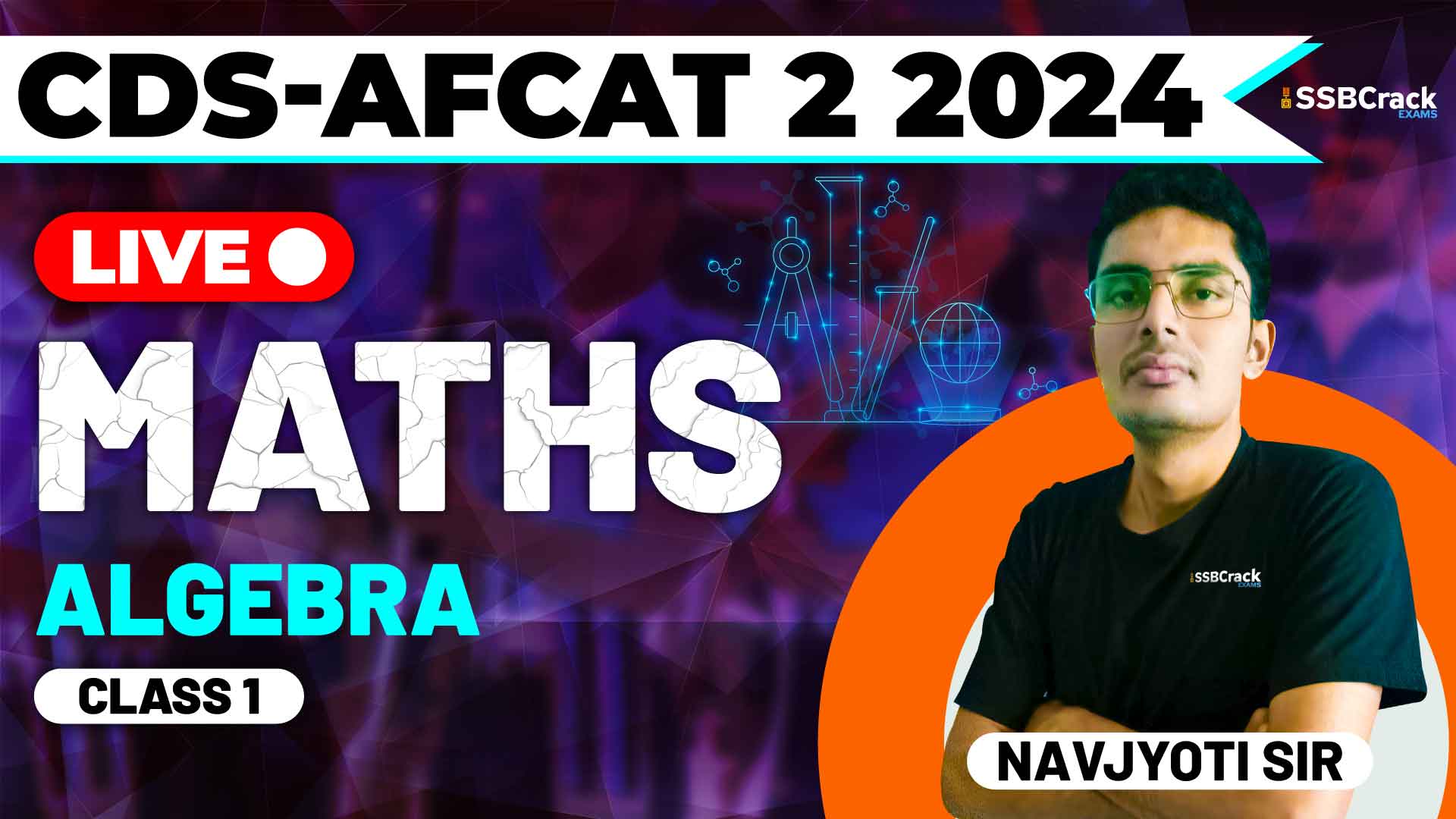Algebra is a foundational component of mathematics and is crucial for competitive exams like the Combined Defence Services (CDS) and Air Force Common Admission Test (AFCAT). A recent class dedicated to algebra covered essential sub-topics including polynomials, the factor theorem, the remainder theorem, algebraic identities, and other related areas. This article highlights the key concepts discussed in the class and emphasizes the importance of practicing multiple-choice questions (MCQs) to excel in these exams.
Understanding Algebra
Algebra involves the study of mathematical symbols and the rules for manipulating these symbols. It forms the basis for more advanced topics in mathematics and is integral to problem-solving in competitive exams.
Key Concepts Discussed in Class
1. Polynomials
Polynomials are expressions consisting of variables and coefficients, combined using addition, subtraction, and multiplication. They play a significant role in algebra and are frequently encountered in various forms.
Key Points:
- Definition: A polynomial is an expression of the form (a_n x^n + a_{n-1} x^{n-1} + \ldots + a_1 x + a_0).
- Degree: The highest power of the variable in the polynomial.
- Types: Linear, quadratic, cubic, and higher-order polynomials.
2. Factor Theorem
The factor theorem is a tool used to determine whether a given polynomial can be divided by a linear factor without leaving a remainder.
Key Points:
- Application: If (x – c) is a factor of a polynomial P(x), then P(c) = 0
- Usefulness: Helps in factorizing polynomials and solving polynomial equations.
3. Remainder Theorem
The remainder theorem is used to find the remainder when a polynomial is divided by a linear divisor.
Key Points:
- Application: The remainder of the division of P(x) by (x – c) is P(c).
- Usefulness: Simplifies the process of finding remainders without performing long division.
4. Algebraic Identities
Algebraic identities are equations that hold true for all values of the variables involved. They are useful for simplifying expressions and solving equations.
Key Points:
- Common Identities: Include identities like ((a + b)^2 = a^2 + 2ab + b^2), ((a – b)^2 = a^2 – 2ab + b^2), and ((a + b)(a – b) = a^2 – b^2).
- Application: Used to simplify complex algebraic expressions and solve equations.
Importance of Practicing MCQs
Practicing multiple-choice questions (MCQs) is essential for mastering algebra and performing well in CDS and AFCAT exams. MCQs help in reinforcing theoretical knowledge and developing problem-solving skills. Here are some benefits of practicing MCQs:
- Concept Reinforcement: MCQs require you to apply algebraic concepts, which helps in reinforcing your understanding.
- Variety of Problems: Exposure to different types of questions enhances your ability to tackle various problem scenarios.
- Time Management: Regular practice improves your ability to solve problems quickly and efficiently.
- Confidence Building: Familiarity with question patterns and consistent practice builds confidence.
Strategies for Solving Algebra Problems
To excel in solving algebra problems, adopt the following strategies:
- Memorize Key Formulas and Identities: Ensure you know the common algebraic identities and formulas.
- Understand the Problem: Carefully read the question to identify what is being asked and the relevant concepts.
- Practice Regularly: Regular practice with a variety of problems helps in retaining the concepts and improving problem-solving speed.
- Double-Check Calculations: Always double-check your calculations to avoid simple errors.
- Use Reliable Resources: Utilize reputable study materials and online resources that offer a variety of practice questions and detailed explanations.
Tips for Effective Preparation
- Consistent Practice: Solve a wide range of MCQs from different sources to familiarize yourself with various question types.
- Mock Tests: Take timed mock tests to simulate the actual exam environment and enhance your time management skills.
- Review Mistakes: Analyze mistakes made during practice or tests to understand where you went wrong and how to correct it.
- Engage with Study Groups: Discussing problems with peers can provide new insights and problem-solving techniques.
- Stay Updated: Keep up with any changes in the exam pattern or syllabus to ensure your preparation is on track.
Conclusion
Algebra is a vital topic for the CDS and AFCAT exams, requiring a solid understanding of various concepts and the ability to apply them effectively. The recent class on algebra provided a comprehensive overview of key topics such as polynomials, the factor theorem, the remainder theorem, and algebraic identities, focusing on practical problem-solving through extensive discussion of important MCQs.
By understanding the concepts, memorizing key formulas and identities, practicing regularly, and employing strategic problem-solving approaches, students can master algebra and excel in their exams. Regular practice and a strategic approach to problem-solving will ensure that you are well-prepared to tackle any algebra questions that come your way. Stay focused, practice diligently, and approach each problem with confidence. Good luck!








